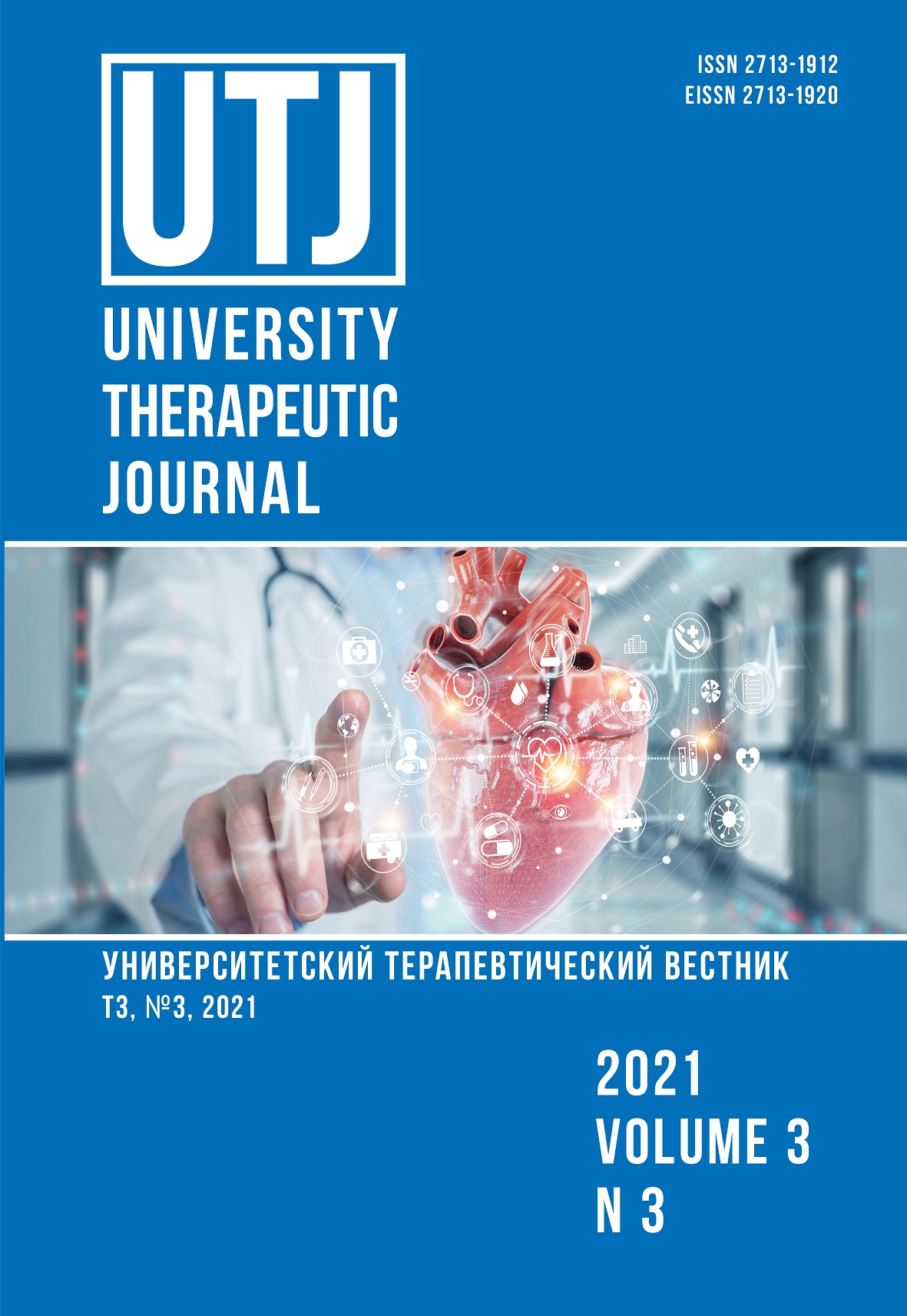CLINICAL FEATURES AND APPROACHES TO MEDICAL THERAPY OF CHRONIC HEART FAILURE IN OLDER AGE PATIENTS
Abstract
In economically developed countries, the average age of patients with chronic heart failure ranges (CHP) from 70 to 75 years, and in people over 65 it reaches 15 %. This pathology, characterized by a wide variety of etiological nature and clinical phenotypes of the disease, is the most frequent reason for hospitalization of elderly and senile patients: up to 70 % of all hospitalizations over the age of 70 years. The prevalent pathogenetic mechanism for the development of heart failure in this group of patients is left ventricular diastolic dysfunction with preserved ejection fraction, while most clinical recommendations for the treatment of CHF are based on data from multicenter studies that studied patients with “classic” CHF with reduced systolic function. In this way the problem of rational therapy of chronic heart failure in patients of the older age group is becoming increasingly important. This article provides a description of the main groups of drugs used in the treatment of CHF, as well as a review of the existing information on the effectiveness of their use in the treatment of older patients.


